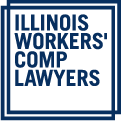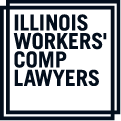Manufacturing environments are often filled with high levels of noise from machinery, tools, and equipment. Prolonged exposure to such noise can lead to occupational hearing loss, a significant concern for many workers in Illinois. If you are a manufacturing employee experiencing hearing difficulties due to workplace conditions, you might be eligible for workers’ compensation benefits.
At Illinois Workers’ Comp Lawyers, we assist workers across the state to help them understand their rights and secure the benefits they deserve under Illinois law.
Understanding Occupational Hearing Loss
Occupational hearing loss occurs when prolonged exposure to high noise levels in the workplace damages the inner ear structures.
In manufacturing settings, continuous operation of heavy machinery, assembly lines, and other equipment can produce noise levels that, over time, impair hearing.
This type of hearing loss is typically gradual, making it challenging for workers to notice until significant damage has occurred.
Illinois Workers’ Compensation and Hearing Loss
Under the Illinois Workers’ Compensation Act, employees who suffer job-related injuries or illnesses, including hearing loss, may be entitled to benefits. To qualify, the hearing loss must be directly related to workplace exposure.
The Act specifies that compensable hearing loss is confined to frequencies of 1,000, 2,000, and 3,000 cycles per second. Hearing loss at frequencies above 3,000 cycles per second is not considered for compensation purposes.
The degree of hearing impairment is assessed using pure tone air conduction audiometric tests. An average hearing loss of 30 decibels or less across the specified frequencies is not considered compensable.
Conversely, an average loss of 85 decibels or more is deemed total or 100% compensable hearing loss. For losses between 30 and 85 decibels, compensation is calculated based on the percentage of hearing loss exceeding 30 decibels, with an allowance of 1.82% per decibel.
Steps to Take if You Suspect Work-Related Hearing Loss
If you believe your hearing loss is related to your manufacturing job, consider the following steps:
- Seek Medical Evaluation: Consult an audiologist or ear specialist to assess the extent of your hearing loss and determine if it is consistent with noise-induced damage.
- Document Workplace Conditions: Keep records of noise levels, duration of exposure, and any protective measures provided by your employer.
- Report the Condition to Your Employer: Notify your employer about your hearing issues as soon as possible. In Illinois, you must report a work-related injury or illness within 45 days to be eligible for workers’ compensation benefits.
- File a Workers’ Compensation Claim: Submit a claim with the Illinois Workers’ Compensation Commission, providing all necessary medical documentation and evidence linking your hearing loss to your job.
Challenges in Pursuing a Hearing Loss Claim
Filing a workers’ compensation claim for hearing loss can be complex – especially, when determining temporary vs permanent disability. Challenges may include proving that the hearing loss is work-related, especially if it developed gradually, and meeting the specific criteria outlined in the Illinois Workers’ Compensation Act.
Additionally, employers or insurance companies might dispute claims, arguing that the hearing loss is due to aging or non-occupational factors. Given these complexities, having experienced legal representation can be crucial in navigating the claims process effectively.
Contact Illinois Workers’ Comp Lawyers Today
If you’re a manufacturing worker in Illinois experiencing hearing loss due to workplace noise exposure, you may be entitled to compensation. Navigating the workers’ compensation system can be challenging, but you don’t have to do it alone.
At Illinois Workers’ Comp Lawyers, we are dedicated to advocating for workers’ rights and ensuring you receive the benefits you deserve. Contact us today!
Hearing loss and Illinois Workers Comp FAQs
. Can I Get Workers’ Comp for Hearing Loss from Manufacturing Work in Illinois?
Yes, if your hearing loss is caused by prolonged noise exposure at your manufacturing job, you may be eligible for workers’ compensation under Illinois law—especially if the hearing loss meets the legal thresholds for compensability.
2. What Type of Hearing Loss Qualifies for Workers’ Compensation in Illinois?
To qualify, the hearing loss must occur at specific frequencies—1,000, 2,000, and 3,000 cycles per second—and be proven through an audiometric test. Losses below 30 decibels are not compensable; losses above 85 decibels may be considered total.
3. How Is Work-Related Hearing Loss Measured for a Claim?
Illinois uses pure tone air conduction audiometric tests to assess average decibel loss across key frequencies. Compensation is based on how much your hearing loss exceeds 30 decibels, with each decibel above that valued at 1.82%.
4. What Should I Do If I Think I’m Losing My Hearing from Work?
See an audiologist for evaluation, report the condition to your employer within 45 days, and begin documenting workplace noise exposure. Then file a claim with the Illinois Workers’ Compensation Commission.
5. Why Is It Hard to File a Workers’ Comp Claim for Hearing Loss?
Hearing loss often develops gradually, making it harder to link directly to your job. Employers or insurers may argue it’s age-related or due to other causes. Legal guidance can help you prove eligibility and meet technical requirements.
6. How Long Do I Have to Report Hearing Loss for a Workers’ Comp Claim?
You must notify your employer within 45 days of recognizing your hearing issues. While the actual filing deadline is longer, prompt reporting strengthens your claim and helps ensure timely benefits.







